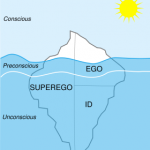Here’s my claim for the day: good writers make the most out of the tension between structure and freedom.
My husband, who’s a composer, always tells me that the artist’s job is to play with tension and release. I’ll work with that idea in another post, perhaps even Assignment #2, but today’s lesson is about structure and freedom.
I was going to write another post tonight about fear (Internet trolls! Amazon reviewers!), but that topic is already starting to feel worn as the clichéd blue jeans. And I do know that creative writing’s not a linear process. Writing about fear for a few posts won’t clear away my fears forever, I’m sure.
In the meantime, what was originally a fun tag line has become a liberating way to think about this blog: as a private MFA. Heck, I’ve already applied and been accepted! With full funding! I get to decide when I’ve graduated! I can do whatever I want, whenever I want!
Uh-oh.
I can do whatever I want: the writer’s blessing and curse.
The teacher in me wants to begin with a syllabus, a reading list, a schedule of assignments, a final project. It’s an MFA, right? Semester 1: finish X. Semester 2, finish Y. Repeat for 2-3 years. Degree granted. Ah, the comfort of a schedule. I like schedules, and as you saw, I like lists. The Capricorn part of me wants schedules…and features…and regularly scheduled features, and featured schedules, and scheduled regularity. But phrased that way it sounds, well, boring, doesn’t it? Why do a private MFA if it’s where to buy ventolin inhalers boring?
Thus, because it’s against my nature, and I think it’s good for me, I won’t create a full structure just yet, to see how things develop. For now, I want to post several times a week. The posts will include these musings about my new writing life, and my self-assignments, and the results of those assignments. As a partial reading list, I’d like to revisit some books about writing, including Anne Lamott’s Bird by Bird, and I’ve been told to pick up Stephen King’s On Writing. (Other suggestions and websites welcome.) However, if it weren’t so mid-90’s, and so ugly, and so distracting, I’d put up those pixilated flashing “Under Construction” signs all over this site. You’ll just have to imagine them whenever you click anywhere here. Or not.
And so I told you that I didn’t want to write about fear again, but I think my desire to hyperschedule may be another way of trying to control the fear, to dance the Procrastination Waltz around the fear. Hitting “publish” on this post was freeeaky, let me tell you. But it’s that kind of fear that pushed me to write creatively in the first place, to start this blog, and it’s that kind of parachute jump fear that artists take whenever they share their work. You get a rush from parachute jumps—or so I’ve been told. It’s the ultimate metaphor of structure, then freedom.
Enough procrastinating! I’ll have an assignment for you next time.




